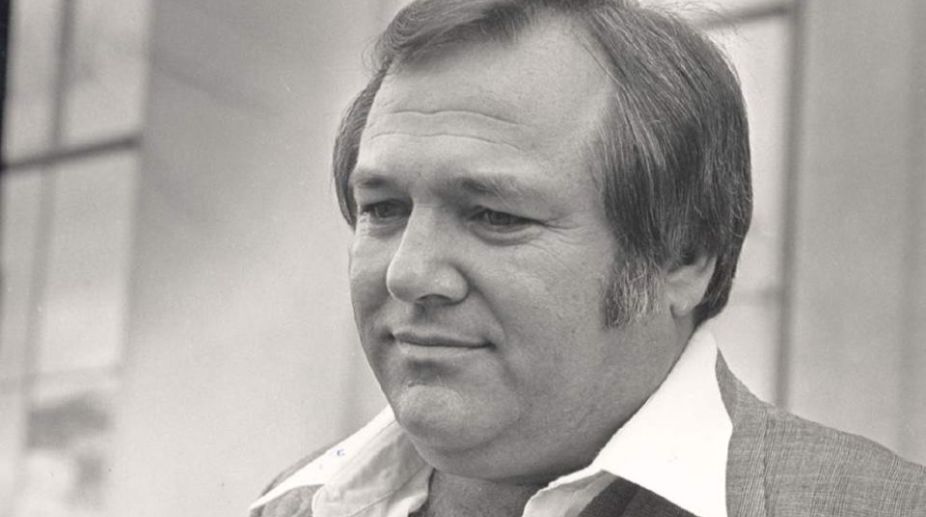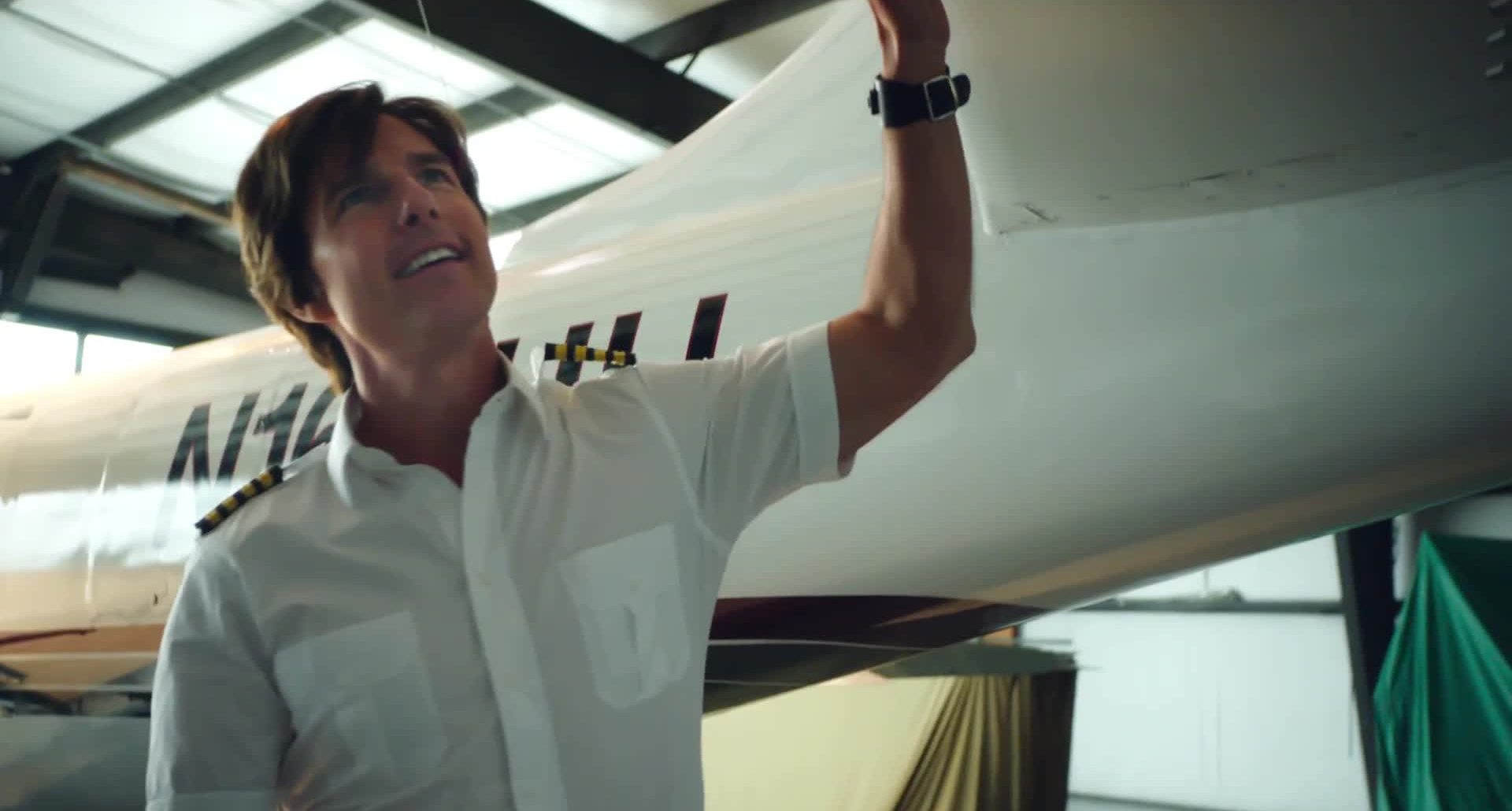‘American Made’ is a high-octane thriller that stars Tom Cruise as Barry Seal, a TWA pilot who becomes embroiled in a world of espionage, drug smuggling, and covert missions. The 2017 film skillfully navigates the intricate political landscape of 1980s America, where government agencies use Seal’s unique skills for their purposes. As the story unfolds, viewers are drawn into a thrilling tale of an anti-hero who brings both excitement and a touch of swagger to the screen.
Directed by Doug Liman and featuring a stellar cast including Sarah Wright, Jesse Plemons, and Jayma Mays, ‘American Made’ offers an action-packed experience set against a backdrop that lends authenticity to the narrative. The film’s portrayal of a character like Barry Seal and his adventures might lead viewers to question the veracity of the story. You might find yourself questioning whether the central character and events depicted in the film are based on a true story or simply a product of someone’s imagination.
American Made is Based on a Real Pilot
‘American Made’ is inspired by the story of Adler Berriman “Barry” Seal, a TWA pilot who became involved in drug smuggling for the Medellín Cartel and later turned into an informant for the DEA. The 2017 film is driven by a script penned by Gary Spinelli and has been described as “a fun lie based on a true story.” While the movie takes creative liberties and departs from reality in many aspects to enhance its drama and narrative, it also incorporates elements of truth from Seal’s life.

Barry Seal was indeed a commercial airline pilot who began his career with Trans World Airlines (TWA) in 1964. Impressively, at the young age of 26, he became one of the youngest Captains to operate a Boeing 707. Seal’s passion for flying was evident from a young age, as he obtained his student pilot’s license at just 15 years old. Additionally, he joined the Louisiana Army National Guard in 1961 and served with the 20th Special Forces Group for six years. It wasn’t until around 1975 that Seal ventured into drug smuggling, initially starting with marijuana and eventually transitioning to cocaine by 1978.
In the film, Barry Seal’s involvement with the Medellín Cartel is portrayed as a result of coercion, where he was abducted and left with no choice but to cooperate. However, in reality, his connection to the cartel began differently. In 1979, Seal was apprehended in Honduras with a substantial amount of cocaine, approximately 40 kilograms. He was subsequently incarcerated in a Honduran jail for nine months. It was during this time that he had a chance encounter with the New Orleans business manager of Jorge Ochoa, a key figure in the Medellín Cartel and was even nicknamed “El Gordo.” The Ochoa Family, along with notorious drug lord Pablo Escobar and others, were the founders and leaders of the Medellín Cartel.
‘American Made’ takes a significant departure from reality regarding Barry Seal’s involvement with the CIA. There is no concrete evidence to prove that the CIA directly intercepted his smuggling business and recruited him for their operations. However, there have been allegations, rumors, and conspiracy theories suggesting that the government turned a blind eye to Seal’s illegal activities because they may have been utilizing his services to transport weapons to Nicaraguan rebels.
During the Iran-Contra affair of the 1980s, the U.S. government secretly supported the rebels in their efforts to overthrow Nicaragua’s Communist Sandinista government. Pilots like Barry Seal were indeed employed to transport weapons to the rebels. Still, Seal’s direct and official connection to CIA operations in this regard remains unproven and subject to speculation. The movie dramatizes this connection for narrative purposes, but the real-life details are far more complex and controversial.
In 1983, Barry Seal’s long-standing evasion of the DEA came to an end when he attempted to smuggle a massive shipment of 200,000 units of Quaalude, a recreational drug, into the United States. His arrest unfolded at the hands of customs officers in Fort Lauderdale, Florida. Faced with an imminent 10-year prison sentence, Seal pursued various avenues to escape incarceration. Initially, he sought a deal with a U.S. attorney, offering to provide information about the Ochoa family in exchange for leniency. However, this proposition was declined. In a bold move, he secured a meeting with Vice President George H.W. Bush’s anti-drug task force, hoping to demonstrate his potential as an informant.
Subsequently, they referred him to the Drug Enforcement Administration. Recognizing Seal’s extensive knowledge and intricate connections within the cartel, the DEA eventually accepted his offer. Seal officially became a federal informant in March 1984. His cooperation proved invaluable, resulting in numerous convictions and the indictment of high-profile figures like Pablo Escobar and Jorge Ochoa. While the film ‘American Made’ presents a somewhat patriotic facet of Barry Seal’s character, it’s crucial to acknowledge that the actual Seal was motivated by substantial financial gain. Per court records, he reportedly commanded exorbitant fees, earning up to $500,000 per flight for smuggling cocaine into the US.
By 1983, Seal’s amassed earnings reportedly reached an astounding $60 million, establishing him as one of the wealthiest individuals in the country. In the realm of drug smuggling, Seal’s illicit activities resulted in the transportation of an estimated $3 to $5 billion worth of drugs, including approximately 56 tons of cocaine, into the US. ‘American Made’ skillfully blends elements of fiction with the actual historical context, offering an entertaining cinematic experience and serving as an intriguing entry point for delving into the complex realities of the cartel’s dominance during that era.
Read More: American Made Review: Tom Cruise Delivers This Time


You must be logged in to post a comment.